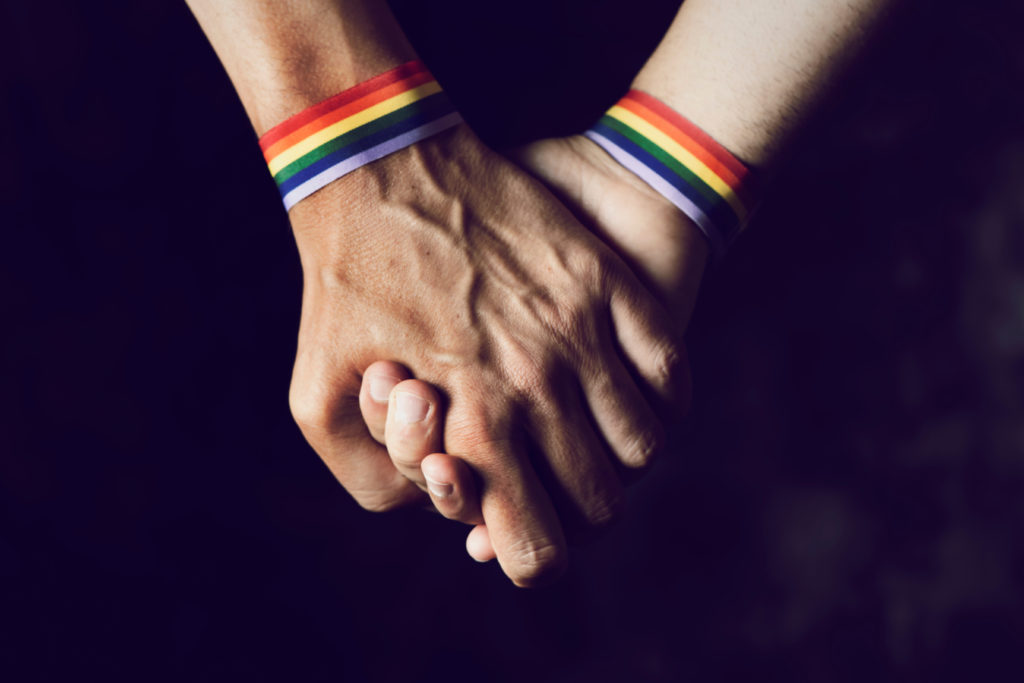Ways to Support LGBTQ+ Mental Health
A professional therapist shares her tips for reducing the stigma that often contributes to mental health concerns in the LGBTQ+ community.

By Chelsea McGuire, MAC, LPC
Counseling Clinic Therapist
June is Pride Month. It’s a time to celebrate diversity in sexuality and gender identity. It’s also a time to remember that, historically, those who identify as a member of the LGBTQ+ community have faced significant stigma and discrimination. Although society has made much progress in this regard, those who identify as LGBTQ+ are much more likely to deal with mental health concerns due to the persistent marginalization and trauma they have experienced on both a community and individual level.
A 2017 survey by Mental Health America found that 49% – nearly half – of participating LGBTQ+ identifying individuals had experienced significant suicidal ideation over the past two weeks, as opposed to 33% of the general population. The same survey also found that LGBTQ+ identifying individuals were less likely to seek out mental health treatment than those identifying as heterosexual and/or cisgender. These results reflect the need for significant change on an institutional level to ensure that members of the LGBTQ+ community are provided with the mental health support and services they need, free from judgement or stigmatization.
Fortunately, there are ways we can ALL help to make a significant impact on the mental and emotional wellbeing of the LGBTQ+ community:
Acceptance is consistently found to make a meaningful impact. According to The Trevor Project, LGBTQ+ identifying youth who feel accepted by their family, community, and friends are two-thirds less likely to experience suicidal ideation and attempts than those who do NOT experience familial support or otherwise welcoming environments. Anyone can offer their acceptance and support at no cost, and even the smallest action can have a significant impact on the life and mental health of an LGBTQ+ individual.
Allies seek to educate themselves regarding the range of sexuality and gender identities that exist. To be a good ally, use the appropriate pronouns when talking with a transgender individual and ask for clarification when needed. Make yourself available to listen to those who need to talk and process their experiences without judgement. Speak out against any prejudice or discrimination you come across in your community.
These are two simple ways you can make a positive impact on the mental health of LGBTQ+ individuals in your life and in your community. If you know someone who is struggling with their mental health due to marginalization or trauma, work to connect them with the social and mental health supports that they need. Let them know it is okay to seek help and that there are therapists right here in Northeast Wisconsin who specialize in the concerns of LGBTQ+ individuals.
 Chelsea McGuire is an outpatient therapist with the Counseling Clinic in Green Bay. She is a Certified Transgender Care Therapist and provides treatment related to depression, anxiety, suicidal ideation, trauma, self-esteem, LGBTQ+ concerns, grief and loss, relationship counseling, parent/child conflict, ADHD, and other life stressors.
Chelsea McGuire is an outpatient therapist with the Counseling Clinic in Green Bay. She is a Certified Transgender Care Therapist and provides treatment related to depression, anxiety, suicidal ideation, trauma, self-esteem, LGBTQ+ concerns, grief and loss, relationship counseling, parent/child conflict, ADHD, and other life stressors.
To schedule an appointment, call (920) 436-6800 or email [email protected].